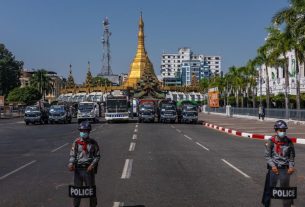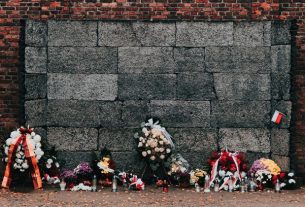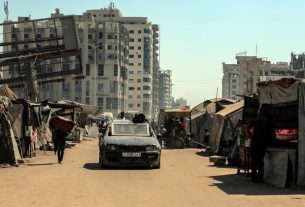From the morgues of Cairo to the cells of Guantanamo, I’ve seen a lot of anguish and cruelty in my human rights work over the years. But often more than blood spilled, it’s the lives stunted, solely because of a person’s identity, that hits the hardest.
I had one such moment visiting a Palestinian refugee camp in Lebanon several years ago. Meeting kids who, through no fault of their own, were effectively condemned to lifelong refugee status, like their parents and grandparents before them, because they are Palestinian, shook me.
May 15 marks the 75th anniversary of Nakba Day, commemorating the more than 700,000 Palestinians who fled or were expelled from their homes, and the more than 400 Palestinian villages destroyed in the events surrounding the establishment of Israel in 1948. As the Palestinian human rights group al-Haq wrote, “the legacy of the Nakba events is that about two-thirds of the Palestinian people became refugees,” while Israel “imposed a system of institutionalized racial discrimination over Palestinians who remained on the land.” Today, there are more than 5.9 million Palestinian refugees, including the descendants of those who fled or were expelled.
Israeli authorities have, pursuant to discriminatory laws, blocked those refugees and their descendants from returning to Israel and the Occupied Palestinian Territory. Meanwhile, Israeli law entitles Jewish citizens of other countries to settle in Israel or West Bank settlements and become citizens. That means a Jewish citizen of any country who has never been to Israel can move there and automatically gain citizenship, while a Palestinian expelled from his home in what became Israel and languishing for more than 70 years in a refugee camp, cannot.
This reality reflects the long-standing Israeli policy to maintain the domination by Jewish Israelis over Palestinians, one element of its crime against humanity of apartheid.
International human rights law guarantees refugees and exiles the right to enter the territory they are from, even where sovereignty is contested or has changed hands, and reside in areas where they or their families once lived and have maintained links to. Like refugees in other contexts, such as Rohingya refugees expelled from Myanmar, Palestinians should have the freedom to choose among the options of returning to reside in the areas where they or their families are from, local integration, or third-country resettlement.
No matter how many years pass, recognizing and honoring the right of Palestinian refugees to return to their homeland should remain central to the discussion of the future in Israel and Palestine.



